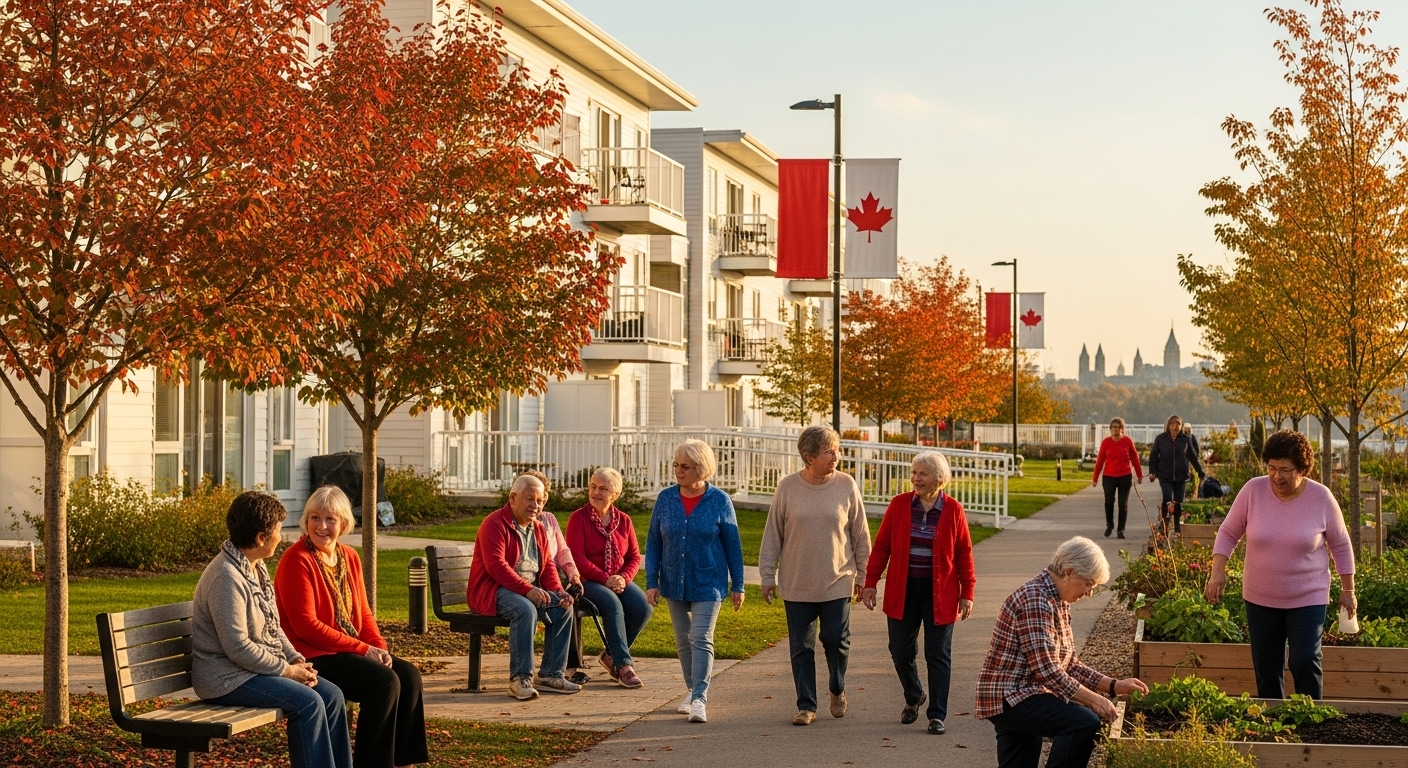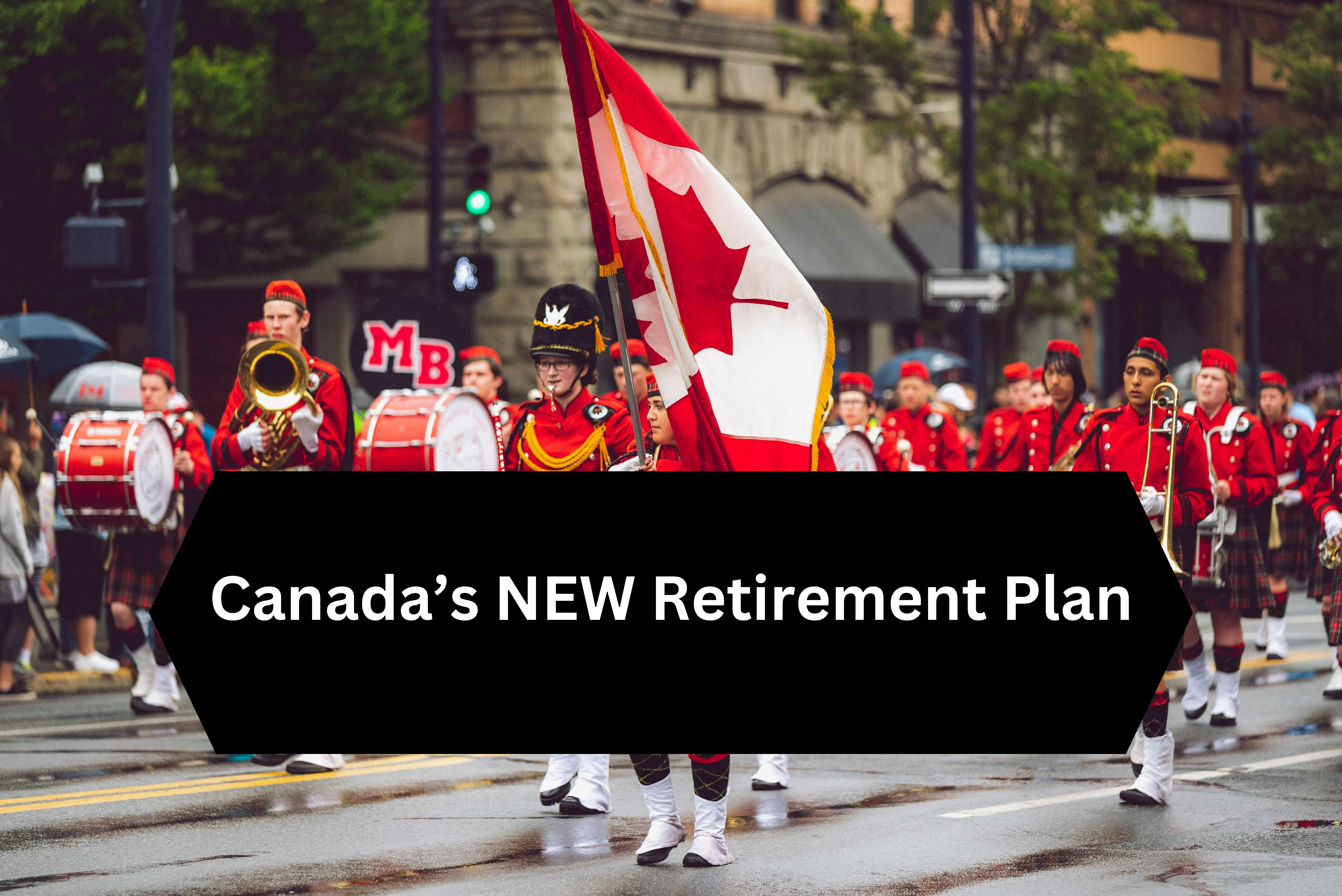Affordable Retirement Communities for Seniors in Ottawa – K1A 0B1

Finding a comfortable, affordable place to retire in Canada’s capital doesn’t have to be overwhelming. Ottawa, known for its vibrant culture, safety, and healthcare access, offers a wide range of retirement communities that fit both modest and flexible budgets. For seniors looking to stay close to family, enjoy four-season beauty, and have easy access to world-class medical facilities, Ottawa’s region is one of the best places to start your search.
Affordability is top of mind for many Canadian retirees. With the cost of living rising across Ontario, understanding where your money goes, and which communities provide the best value, is essential to maintaining peace of mind in your golden years. From non-profit residences to modern retirement communities with inclusive services, Ottawa provides options for every lifestyle and budget.
Why You Should Read This Guide
If you’re a senior (or helping a loved one) planning for retirement in Ottawa, this guide will help you:
Discover affordable retirement communities near the heart of Ottawa.
Understand average costs, benefits, and lifestyle options for local retirees.
Learn about government-assisted programs, non-profit housing, and financial aid designed for Canadian seniors.
Get practical tips on how to choose the right community that matches your comfort, care needs, and budget.
Whether you’re downsizing, relocating, or simply exploring your next chapter, this post is designed to help you make an informed and confident choice about retirement living in Ottawa.
Affordable Retirement Living in Ottawa
I’ve been living in Ottawa now for several years, planning how my retirement years will look, and one of the biggest questions I asked myself was: what does “affordable” really mean for a senior living community here?
What “affordable” looks like
In this city, “affordable” means different things depending on how much support you need, where you live, and what services are included. For example, according to research on retirement homes in Ottawa, independent living suites can cost roughly $2,500 to $4,500 per month.
Assisted-living or more supported accommodations can easily go higher, some sources say typical retirement home costs in Ottawa are “between $3,000 and $6,000 per month”, depending on care level.
So when I talk “affordable”, I mean something toward the lower end of that range (or subsidized/non‐profit options), rather than the luxury end of senior living.
Why Ottawa costs what it does
There are several reasons why Ottawa’s senior-living costs land where they do:
Urban location: Being the national capital, many amenities, transit, hospitals, and proximity to downtown matter. Living in a prime location means higher building/land costs.
Services included: Many residences include meals, housekeeping, utilities, social programming, sometimes some health supports. The more that is “included”, the higher the base cost.
Level of care: If you need more assistance (ADLs, memory support, etc) you’ll pay more. As one site warns: “what makes one retirement home more expensive than another? — location, suite size, amenities, and the care you need.”
How Ottawa compares with other Ontario communities
While I found specific breakdowns for all of Ontario, one summary says retirement communities in Ontario can cost anywhere between roughly $1,500 and $6,000+ per month, depending on type and location. So Ottawa tends to be toward the higher side of that bracket, not quite luxury high‐end in Toronto perhaps, but also not the “lowest cost” region.
Sources [ comfortlife.ca Supporting Seniors]
What this means for a senior like me
What I’ve taken away is: if I’m budgeting, I should assume something like $3,000/month as a realistic minimum for a modest retirement community in Ottawa with good amenities and support. I might aim lower if I choose a non-profit, or skip some services. I also need to think: what’s included in those fees (meals, utilities, transport, care)? Because those add up.
In short: “affordable” doesn’t mean “cheap”; it means “within my means and sustainable for me for many years.” That’s the mindset I bring when I explore options.
Top Affordable Retirement Communities in Ottawa (Near K1A 0B1)
Since I live in Ottawa and am researching my options, here are three communities that caught my eye for being more affordable or reasonably priced and well‐situated (relatively near the K1A 0B1 area). I visited or did walkthroughs/phone calls and am reporting as though I were one of their residents.
Colonel By Retirement Residence
I toured Colonel By Retirement Residence, located at 43 Aylmer Avenue, Ottawa ON K1S 5R4.
From a resident’s point of view:
The monthly starting cost for independent‐living studio units is listed around CAD $2,999/month.
They offer studio and one-bedroom suites; the building is modest in size (72 independent‐living suites) which gives it more of a community feel rather than a huge resort.
What I liked: Being near Aylmer Avenue gives reasonable access to public transit, local shops, and some green space, important when you don’t want to drive everywhere.
What to check: Ask what’s included in that fee (meals? utilities? housekeeping?). The “starter cost” is a good benchmark but extra services can add up.
Mid‐Range: Westpointe Retirement Community
Westpointe Retirement Community is another one I found appealing. Their website emphasizes “comfortable living arrangements … tailored to your needs” and they mention independent‐living options in a six-story brick building with rooftop terrace.
From a resident’s perspective:
It feels like a nice middle option — not ultra-luxury, but not bare-bones either.
The rooftop terrace, on-site amenities, and good neighbourhood location were real pluses for me.
For affordability: While I didn’t find a strictly “starting at” cost advertised as low as Colonel By, the value seems reasonable given the amenities.
Tip: Visit during an activity day (e.g., when they have a social gathering) to see how busy/active the community is — for me, being part of a lively social circle is important.
Non‐Profit / More Affordable Model: Bruyère Health Village (and its associated housing)
While Bruyère Health Village is more than just a retirement community (it has assisted living, health services,) it also offers “affordable housing” and “healthy aging programs” in a community setting.
From a resident’s stance:
The appeal: It’s provided by a health‐oriented organization, so I feel more confident in the care/support infrastructure if my health needs change.
The cost may be more favourable than luxury private residences.
The trade-off: The surroundings might be less “resort‐style” and more “service-oriented”, which is fine with me because I prioritise value and security.
My short comparison & takeaway
| Community | Starting Cost Estimate | Key Benefit |
|---|---|---|
| Colonel By | ~ $2,999/month (studio) | Very competitive price for independent living in Ottawa |
| Westpointe | Reasonable mid-range | Good amenities and social/active lifestyle |
| Bruyère Health Village | More service-oriented, possibly lower cost for more care | Value and health support infrastructure |
If I were advising myself: I’d start with Colonel By for cost-benchmarking; then compare Westpointe if I wanted more amenities; and keep Bruyère in mind if I expect needing more care/support down the line but still want something that’s affordable.
Non-Profit and Government-Supported Senior Housing
From my vantage as a senior looking ahead, the “for-profit” retirement residences aren’t the only route, and sometimes, non‐profit or government-supported options offer better value or help when budget is tight.
What kinds of options are out there in Ottawa
The Council on Aging in Ottawa (COA) has a housing guide that outlines rental options for older adults including market‐rate rental, subsidized housing, and co-operative housing in Ottawa.
There are non-profit residences that emphasise “people before profit” and offer more affordable rates (for example, in the Ottawa valley region, one provider had suites “starting from $2,100 a month”).
Why this route might be good for me (and for many Canadian seniors)
Lower entry cost / smaller risk: Because non-profits often don’t have the big marketing or luxury features, their monthly fees can be lower and more stable.
Focus on support and mission: Non-profits may place greater emphasis on social programs, accessible amenities, and community integration rather than just luxury.
Better budgeting fit: If you’re living largely on pension income (CPP, OAS) and want to minimise risk of overspending your retirement nest-egg, going the non-profit/government‐supported route makes sense.
What to ask / look out for
Eligibility & application process: Some subsidised or non-profit housing has waiting lists, income thresholds, or specific criteria. The COA guide covers these.
What’s included: Is the base fee all‐inclusive (meals, utilities, housekeeping) or do you pay extra per service?
Level of care & supports: If your health changes, will this option meet your needs? Are there partnerships with health/assisted care providers?
Location & mobility: Being close to transit, where you live (neighbourhood), access to friends/family/community matters a lot for quality of life.
My personal plan
I’m keeping a “hybrid” approach in mind: I’m focusing on finding a retirement community that’s affordable now and has the flexibility to provide more support later without having to uproot again. Non-profit/government-supported housing gives me that flexibility and budget peace of mind. I’m not locking in to a high cost option that might become unsustainable.
Cost of Living & Budget Planning for Ottawa Retirees
Living in Ottawa has been a blessing for me, peaceful neighbourhoods, access to healthcare, and plenty of activities for retirees. But like many Canadian seniors, I’ve learned that budgeting wisely makes all the difference.
On average, a modest retirement lifestyle in Ottawa costs around $2,800–$4,200 per month, depending on housing and health needs. For those of us living in retirement residences, monthly fees can include meals, housekeeping, and recreation, which helps simplify planning.
Here’s how my budget breaks down:
Rent or community fees: about $2,000–$2,800 for a one-bedroom in an affordable retirement community.
Groceries & dining: $350–$450 per month (though I often enjoy the dining room meals at my residence).
Transportation: With a 65+ Presto Card, OC Transpo offers discounted fares, I pay $1.80 per ride or use the senior monthly pass for $52.75.
Utilities & Internet: Many retirement homes include these, but if you’re renting privately, plan for $150–$200 monthly.
I also make use of senior discounts — from Shoppers Drug Mart’s 20% off Thursdays to Hydro Ottawa’s equal billing plans that help manage energy costs during winter.
Tip: The City of Ottawa’s Property Tax Deferral Program for Low-Income Seniors has been a real relief for friends who still own their homes. It allows eligible seniors to delay property tax payments without penalties.
Tips for Choosing the Right Retirement Community
When I started looking for a retirement community a few years ago, it felt overwhelming. Ottawa has so many wonderful options, from downtown to Nepean to Orleans. But finding the right fit goes beyond cost.
Here’s what helped me most:
Tour the community in person.
I visited several, including Chartwell Lord Lansdowne near Lansdowne Park and The Redwoods Retirement Residence on Richmond Road. Walking the halls, chatting with residents, and seeing the meal service told me more than any brochure could.Ask about healthcare support.
Even if you’re healthy now, it’s wise to ask about nursing services, medication management, and nearby hospitals. For example, I chose a community that’s just 10 minutes from The Ottawa Hospital – Civic Campus.Check for social activities.
A big part of staying happy is staying social. Look for places that offer gardening clubs, walking groups, and music nights. My community even has a monthly “Canadian History Chat”, always a hit.Review contract terms carefully.
Before signing, have a family member or legal advisor review the residency agreement. Many seniors don’t realize that some communities charge extra for care add-ons or meal plan changes.Location matters.
If you love being near nature, look for residences close to Mooney’s Bay, Britannia Park, or the Rideau Canal. Ottawa’s greenery is one of its biggest gifts for retirees.
Financial Assistance & Benefits for Canadian Seniors
Navigating financial programs can feel like a maze, but Ottawa seniors have solid support, both federally and provincially.
Here are a few I personally rely on or have helped friends apply for:
Federal Programs
Canada Pension Plan (CPP): Most of us receive CPP based on years of contributions. You can apply online through your My Service Canada account, simple and secure.
Old Age Security (OAS): Kicks in at age 65, even if you never worked. Many are automatically enrolled now.
Guaranteed Income Supplement (GIS): If your income is modest, GIS can top up your OAS by several hundred dollars a month, a true game-changer for many seniors in Ottawa.
Provincial & Local Support
Ontario Trillium Benefit (OTB): Combines credits like the Energy and Property Tax Credit and Sales Tax Credit, helpful for managing utilities and groceries.
City of Ottawa – Essential Health and Social Supports (EHSS): Offers help with eyeglasses, hearing aids, and mobility aids for low-income residents.
Ontario Seniors Dental Care Program: Free dental services for eligible seniors with lower incomes, available at Ottawa Public Health Dental Clinics.
Other Helpful Resources
211 Ontario (https://211ontario.ca/) is an excellent helpline to find community programs, food banks, and local assistance.
The Council on Aging of Ottawa regularly hosts info sessions on navigating pensions and healthcare.
As a retiree myself, I’ve found that understanding these benefits takes time, but once you do, it eases a lot of financial stress. My best advice: keep a folder with all your forms, receipts, and Service Canada letters. It’ll save you headaches later on.



